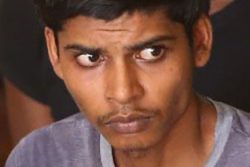There can no longer be any serious debate about it: wherever we aim our gaze, the evidence is clearly before us now that Guyana must find a way to get off this fractured political path that has bedevilled us since independence. Our attempts to cut either Westminster or Republic systems to suit our cloth have been disastrous at virtually every turn, and have left us depleted by migration, crippled by political squabbling based on ethnicity, and beset with corruption both private and public.
Leave it to say that Guyana today, with all our oft professed natural resources and enormous potential, is on the bottom rung of development and standard of living in the Caribbean.
We have been masters of our own fate for almost 50 years now, and looking back at our record under successive governments it is long past time for us to accept that what passes for the political process in Guyana has failed us.
 Our projects continue to stumble; every week that passes sees the young, and the not-so-young, trekking to Timehri in the mornings on the migration trail; our population centres are home to squalor and unkempt surroundings.
Our projects continue to stumble; every week that passes sees the young, and the not-so-young, trekking to Timehri in the mornings on the migration trail; our population centres are home to squalor and unkempt surroundings.
We don’t have to read about it in the press; we see it for ourselves every day of the week in plain view.
It is long past time for us to consign the present political arrangements to the rubbish bin. In our recent history, we have been practising the politics of division based on race, instead of the democratic inclusion ideal, and it has ever been to our detriment and indeed our shame. Any measured examination of our time at the political helm reveals the futility of continuing the disarray and squabbling and inefficiency of the past 50 years with these exclusionist “we versus them” attitudes of successive governments.
Some voices are already bravely waxing to the point. We see the politician Joseph Harmon contending that “determining our presidential and prime ministerial candidates on the basis of race is a failed model” as he referred to “the “historical damage that racial hatred and political prejudice has wrought.” We see letter writer Mike Persaud saying that “we need parties to win not just a 51% majority, but more importantly, that majority must include significant multi-racial support.
The political class in Guyana needs to understand that any viable governing mandate needs to be redefined to include a genuine broad-based multi-racial mandate.” He stresses that we should press “both major parties – the Indo-ethnic PPP and Afro-ethnic PNC – to become genuinely multi-racial and insist that they do what is necessary to win cross-racial support. These heavily race-voting elections Guyana has had in its post-colonial history should have long ago been relegated to the dustbin of history.”
As it often is in politics, however, it may well be that our political leaders, brought up in the present order, may not be running to embrace new configurations outside of the conventional historical box. Given the possibility of that prospect, the people must therefore push them in the direction of change.
We must individually forego exhorting one another and focus on those who may be in the Parliament after May 11. We should be speaking calmly now, one-on-one, to our political representatives, of whatever stripe, indicating to them clearly that we have seen the disaster of the present arrangement which leaves half of our country outside the pale, and that to continue with it is only to continue the disaster.
It has to be clear to all who have engaged the question that Guyana, historically and ethnically, is an unusual combination that requires an unusual solution; one in which all the citizens of the country can find inclusion and participation in the process.
If part of the solution is a retooled constitution, so be it. If part of the solution is a revolving presidency, as mooted by Mr F Skinner recently, so be it.
If part of the solution is that the party with a plurality must find ways to include “opposition” elements in our governance, so be it. The people who care about the future of Guyana have to have reached the point in recent years of realizing that we must change our system of governance if we are to put this country right. If they haven’t reached that point, it means they’re either not paying attention or they’re dismissing realities.
In a time when forums to indicate the public pulse are lacking, citizens must take on the individual responsibility to declare our thinking to the potential politicians in our midst. Whatever our political stripe, we must tell the candidates courting our vote in this manifest multi-racial mix that our highest priority is for meaningful inclusion of all in the governance process, no matter who wins.
We must say it firmly and clearly. In the small communities that make up Guyana, the people we elect, or are about to elect, are within easy reach. We are on a first-name basis with many of them; we see some of them daily.
We must take five minutes and impress upon them that Guyana must discard the “we pan top” formula for the disaster it has been.
We must do it in the social settings, or the official functions, or via the electronic media, or in the private meetings, or even from the passing car.
We must declare that “it can’t be jus’ awe dis; it has to be all o’ awe dis.” It is time for plain talk. We cannot continue to go so.









